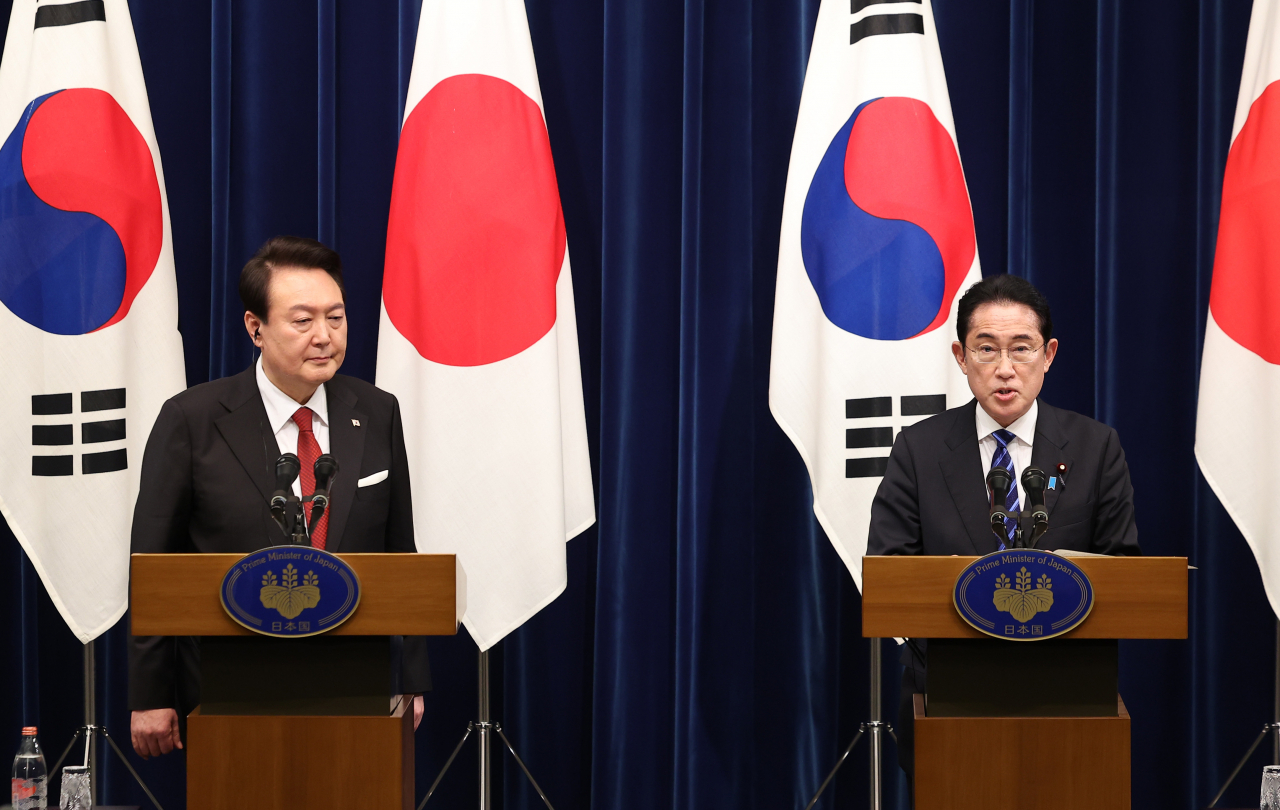
The Yoon Suk Yeol administration could make better use of its recent deal on Korean victims who suffered Japan’s forced labor during its rule of the Korean Peninsula from 1910-45, if it addresses a split public directly, expert said Tuesday amid growing skepticism Yoon invited the wrong kind of closure.
The two-day summit between Yoon and his Japanese counterpart that ended Friday in Tokyo reaffirmed Yoon’s March 6 proposal. It breaks down to delaying the pursuit of a specific apology and direct compensation from Japanese companies that had used forced labor, as recognized by a 2018 Korean court ruling, while allowing the Korean government to use local business funds to pay the victims.
Supporters of the settlement say Korea has taken the initiative by “essentially seizing the moral high ground” because doing so leaves the door open for the Japanese to follow through on the apology and compensation -- the two steps the Japanese firms have refused, citing a 1965 treaty that normalized ties following Seoul’s independence from Tokyo in August 1945.
“In the long-term we have an edge. But for the public to see through this, the Yoon government could do better,” said Lee Won-deog, a professor of Japanese studies at Kookmin University.
Lee was referring to mounting voices calling Yoon’s resolution an “unwarranted capitulation” since it skips an immediate “official apology and direct compensation.”
Since the two-day summit, the first in 12 years, Yoon’s office has done little to reach out to members of the public who are still skeptical about the deal that Yoon officials have described as a turning point in relations.
Instead, the administration painted a rosy outlook on joint security and economic cooperation, as South Korea searches for a stronger international coalition to counter nuclear threats from North Korea and supply chain disruptions involving chips.
Overly stressing such “accomplishments” could backfire, Lee noted, because people upset with Yoon’s “seeming nonchalance” toward the Korean victims, who are left without a visibly heartfelt apology and compensation, will unlikely see the good the deal potentially has in the long run.
Choi Eun-mi, a research fellow at the Asan Institute for Policy Studies, urged the Yoon government to more actively fight skepticism over the deal, warning of a rapidly deepening public divide that could scuttle the momentum built on the recent thaw. “More personal outreach should take place before it becomes too late,” Choi said.





